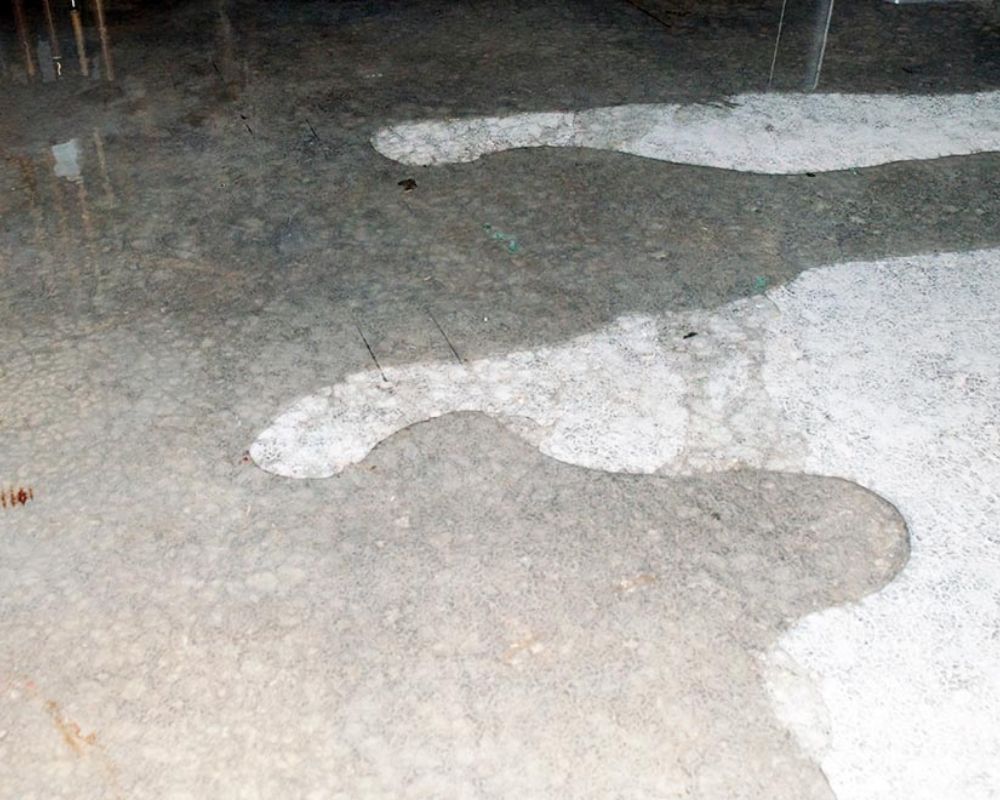We often think about leaks and floods during warmer, wetter months but there are several reasons you may have a leaky basement this winter. Leaks can happen anytime and winter is no exception.
Leaks anytime are an unwelcome visit, often leaving a large mess and a larger repair bill. While we can’t prevent all leaks from happening, we can take preventive measures to make sure some don’t occur.
6 Reasons You May Have a Leaky Basement this Winter
Nothing ruins a celebration faster than a leak or flood. If your basement is finished and you have guests in, it can be a real disaster.
- Melting Snow
The heat in your basement can seep out through or around the windows, or small cracks. This will melt the snow and ice around the area and the water will seep back in.
It can also happen a little deeper down. Once the snow melts, it soaks into the soil and then gets trapped in the soil against the basement walls. Once there is too much to move, it starts to leak inside.
2. Frozen and Burst Pipes
If your water or sewer pipes freeze, they can burst. This is a very common reason you may have a leaky basement this winter. Burst or leaking pipes happen all the time.
Condensation can also build upon the pipes when the liquid inside the pipe is different from the temperature outside the pipe. This condensation will start to fall off and cause a leak.
3. Damaged Gutters and Downspouts
Cold and freezing temperatures can damage your drainage pipes. If they are clogged or not draining correctly, the water will freeze inside and then thaw. If there is too much weight they can break or pull away from the house.
This water will run down the side of your home and gather at the base of your foundation. Just like the melting snow, it needs somewhere to go, which will likely be your basement.
4. Hydrostatic Pressure
Hydrostatic pressure refers to gravity’s downward pull. This pressure is often a reason you may have a leaky basement this winter.
When the pull of gravity pushes down on the excess moisture that is sitting around your home, the moisture gets pushed through any existing cracks or open spaces. If the pressure is really strong, it can create cracks to move the water.
5. Leaky Windows
Windows and window wells are another reason you may have a leaky basement this winter. They can get damaged from the changes in weather, the freezing and melting of the snow and ice, or they may be old.
Wooden frames can swell and this can cause the caulking to break. There may be smaller openings around the pains and the window wells can get clogged or hold water that was meant to be sent away by the gutters.
6. Faulty Sump Pump
If you don’t have a sump pump, it may be time to consider one. If you do have one, make sure it is working alright. It may not be big enough or capable of handling the excess water that gets into your basement.
When you are having an inspection for your HVAC or foundation, make sure they check your sump pump, as well. It is there to keep your basement from getting flooded.
Reasons You May Have a Leaky Basement this Winter
Leaking basements are a mess, even small leaks can cause damage. If you need tips on keeping your basement dry or want to schedule a basement waterproofing, please contact us today at Olson Foundation Repair.

